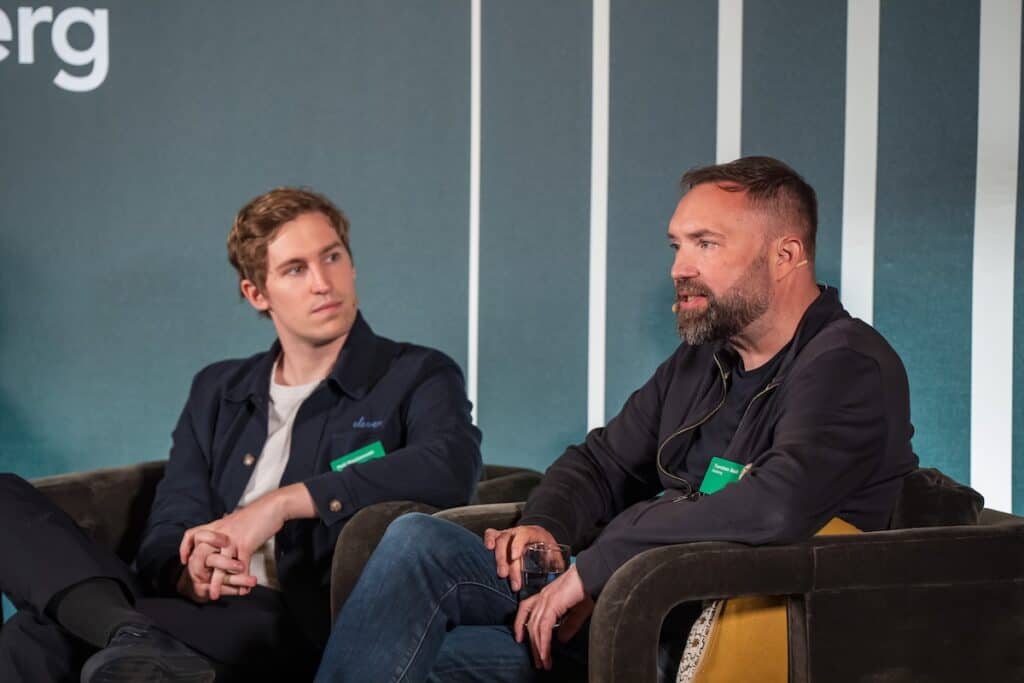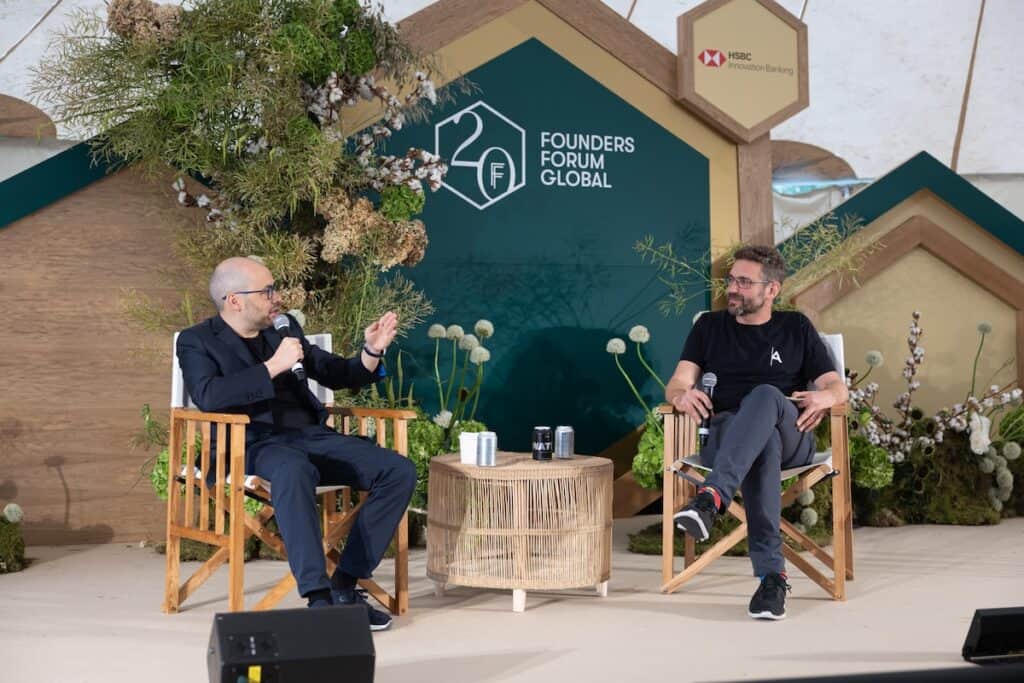Last updated on October 30, 2025
What does the future hold for European tech? Spotify’s Daniel Ek, Bolt’s Markus Villig, Lendable’s Victoria Van Lennep, and more unicorn founders discussed Europe’s tech edge at FF Global 2025.
As we reflect on the twenty years of Founders Forum Global, there has been a sizeable shift in the European tech landscape and Europe today has a once-in-a-generation opportunity to seize and assert its role in a changing world.
In UK tech alone, we’re now seeing multi-billion-dollar valuations, bigger raises, and unicorns being produced faster than ever before.
There is still unrealised growth due to regulatory uncertainty, energy constraints, a fragmented policy landscape, and an infrastructure gap that is costing Europe billions. Even so, with the right strategic positioning, Europe is on the cusp of leading the tech revolution.
Read on to uncover the key insights from Inside FF.
Founder Spotlights:
Daniel Ek, Spotify
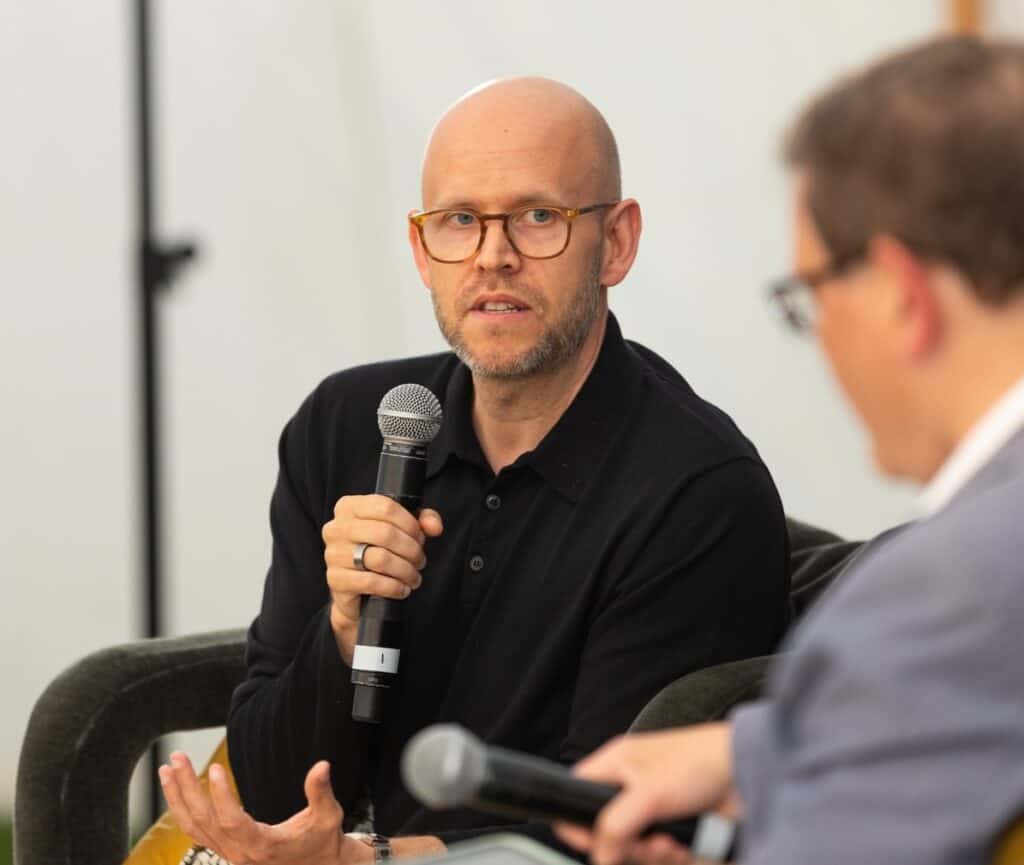
HQ: Sweden
Stage: Post-IPO
Total Funding: $2.06b
FFs Attended: 2
Spotify’s Daniel Ek reflected on the last two decades of European tech with John Thornhill (Financial Times / Sifted). From building global companies, to backing bold new ventures, they discussed what it will take for Europe to lead the next wave of innovation.
Markus Villig, Bolt
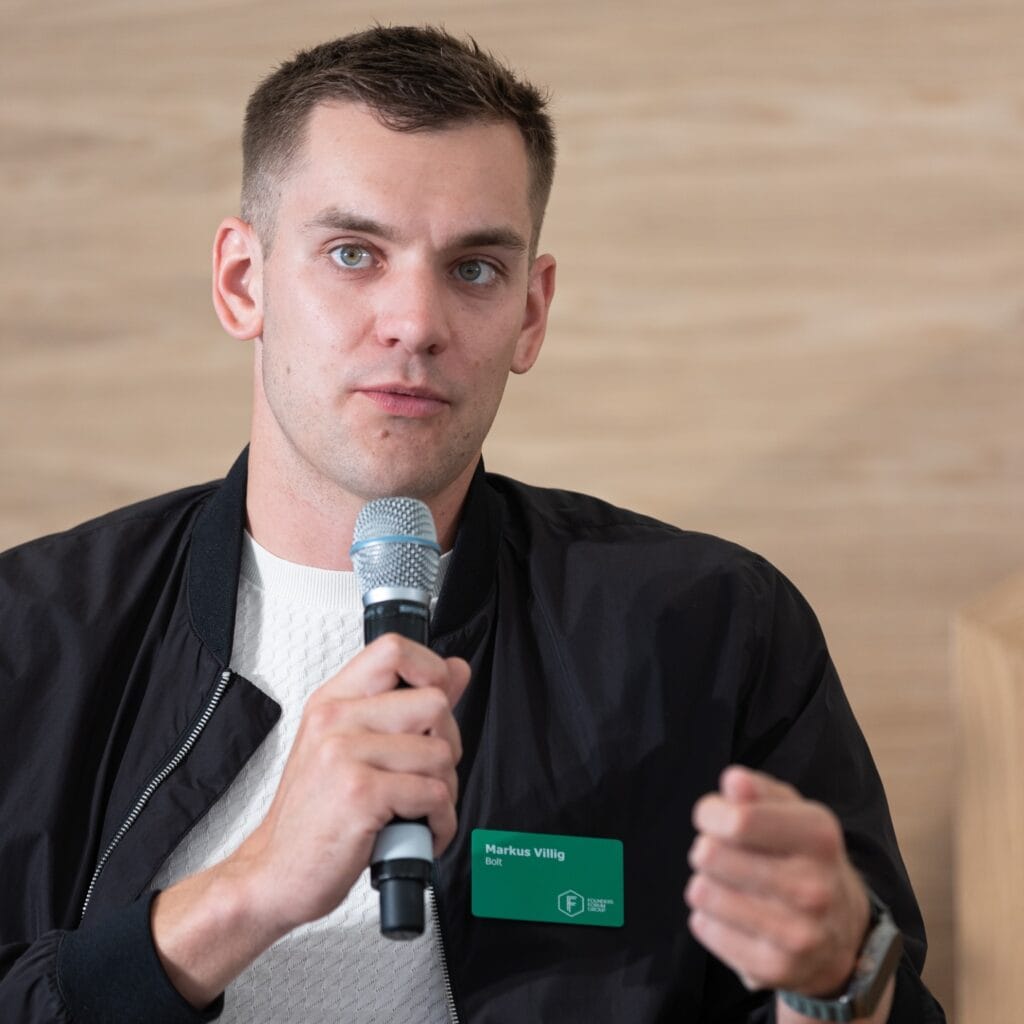
HQ: Estonia
Stage: Series E
Total Funding: $1.98b
FFs Attended: 12
Bolt’s Markus Villig sat down with Supercell’s Ilkka Paananen, Alan’s Jean-Charles Samuelian, and Sequoia’s Luciana Lixandru to discuss building Europe’s next global giants. They outlined the changes needed to unlock more decacorns across Europe.
Victoria Van Lennep, Lendable

HQ: London
Stage: Series B
Total Funding: $293m
FFs Attended: 24
Lendable’s Victoria Van Lennep spoke to Airwallex’s Jack Zhang, bunq’s Ali Niknam, and Invisibly’s James McKelvey about how to build standout products in fintech, expand internationally, and succeed in fast-moving markets.
The Rise of European Tech
Europe’s technology sector has undergone an exciting shift. In 2024, investment in European tech reached approximately $45b, nearly tripling the $15b recorded in 2015.
Unicorns aren’t the mythical creatures they once were. In the UK alone, 10 unicorns were created in 2024, including Flo Health, Quantinuum, and Wayve, with an exciting roster of future UK unicorns on the horizon. UK companies are reaching unicorn status faster than ever, taking around five years for companies founded between 2015-2025, compared to eight years for companies founded in the previous decade.
Each European region is developing unique strengths and contributing to the region’s global tech leadership. In France, tech startups raised €10.8b in funding last year. The German enterprise software market is projected to generate $13.57b in revenue in 2025, and cloud-based solutions now account for over 64% of software distribution in the country.
Sweden is home to global unicorns like Spotify and Klarna — Stockholm has produced more billion-dollar tech companies per capita than any region outside Silicon Valley. Venture investment in Eastern Europe reached a record €3.89b in 2024, and the number of startups in the region has doubled in the past five years.
An increasingly strong foundation of technical talent is also settling in Europe, especially at the entry level. Particularly in AI, Europe is experiencing its first net talent inflow in the last 15-20 years. What’s more, European engineering expertise comes at roughly one-third of the cost of Bay Area rates, so a real value proposition for both investors and companies. Europe produces twice as many PhDs as the US, and generates double the AI research output, creating a deep pipeline of talent and innovation.
The capital efficiency speaks for itself: in the UK, 12% of companies with $100-250 million in funding achieve unicorn status, according to The Tech Nation Report 2025, comparable to the US rate of 14%. It’s clear that European startups can compete on equal footing with their Silicon Valley counterparts while operating in a more cost-effective environment.
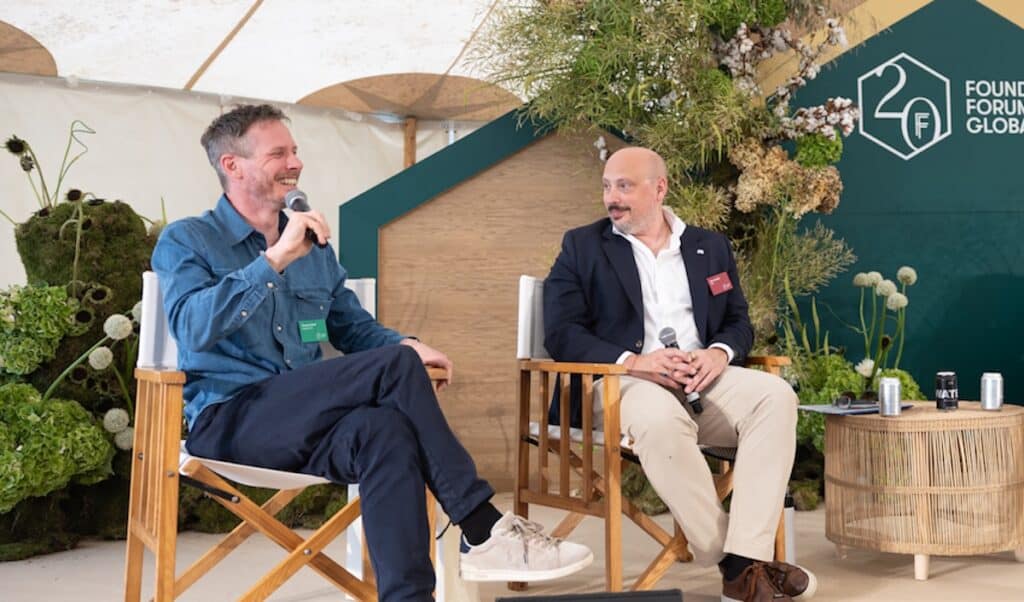
The Infrastructure Gap
Despite real advances in European technology over the last two decades, expensive infrastructure gaps are stifling growth. When considered as economic blocs, Europe and the US have comparable GDP and population sizes, yet European tech valuations dramatically lag US counterparts.
In Europe, ongoing regulatory and policy uncertainties and infrastructure challenges such as energy constraints have led investors to redirect funds to other regions with more favourable and predictable environments. Subsequently, economic gains and tech advancement are limited. The US’ “Magnificent Seven” — the seven largest American tech companies, Alphabet (Google), Amazon, Apple, Meta, Microsoft, Nvidia, and Tesla, are 20 times bigger than Europe’s seven largest, and generate 10 times more revenue.
Europe is missing out on a €250b+ data centre investment opportunity due to planning regulations. Despite the announcement of an €100b infrastructure programme, it is yet to be implemented. Its aim is to upgrade and expand digital infrastructure across Europe, addressing gaps in connectivity, data centre capacity, energy availability, and supporting future digital needs to boost global competitiveness, but, in the global race, speed remains critical.

The Next Decade: An Opportunity
Current European tech companies are generally much younger than the US tech giants. Many of Europe’s success stories are under 10 years old, compared to 30-50 years for the US Big Tech firms. An ecosystem’s success requires around 10+ years of sustained development, so we are potentially on the cusp of something exciting in Europe.
We’ve seen that large-scale funding is possible — Arthur Mensch’s Mistral raised €1.2b and Alex Kendall’s Wayve announced a $1.05b Series C last year.
There is a need for clearer frameworks and harmonised policies to better attract and secure future investments in Europe. There is a growing pool of ambitious founders targeting $100b+ outcomes, but we need to create the conditions for those companies to thrive and scale.
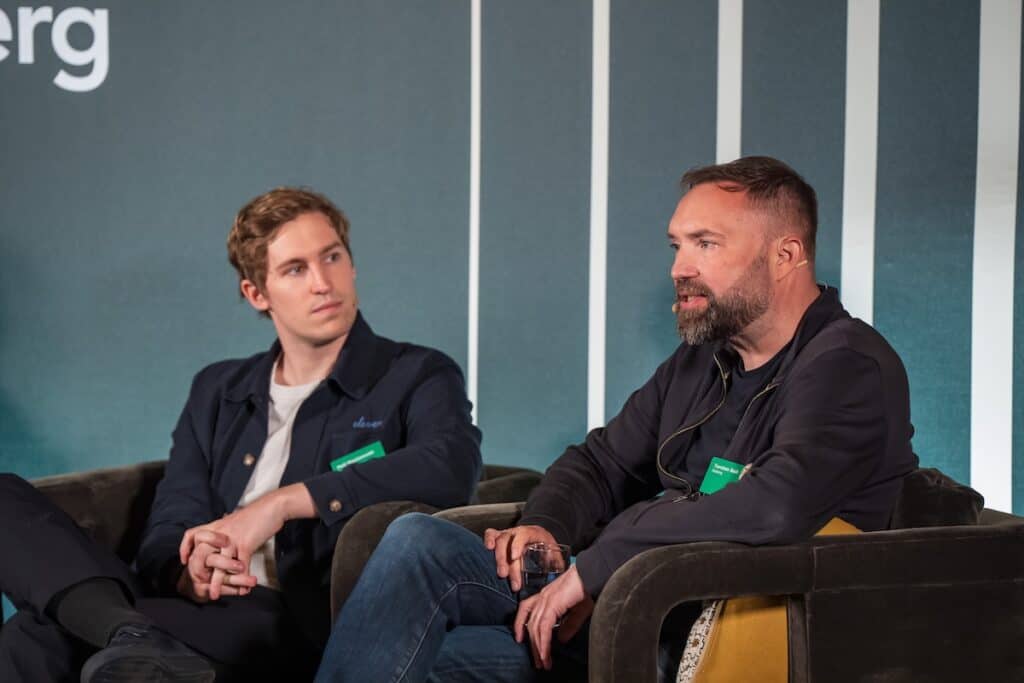
To drive Europe’s tech sector forward, it’s crucial that we accelerate implementation of announced initiatives and infrastructure development. In the AI sector, we need to address data protection regulations while maintaining security, as well as embrace an open-source approach and address current resource constraints by developing lightweight competing AI models.
We need to continue attracting major tech companies to build a local talent pipeline, and build out engineering hubs in emerging European tech centres.
Europe’s tech sector has the fundamentals in place — strong talent, capital efficiency, and growing investment. The challenge now is execution: implementing infrastructure programs, streamlining regulations, and maintaining the momentum that has brought the region to this pivotal moment.
 All Posts
All Posts

